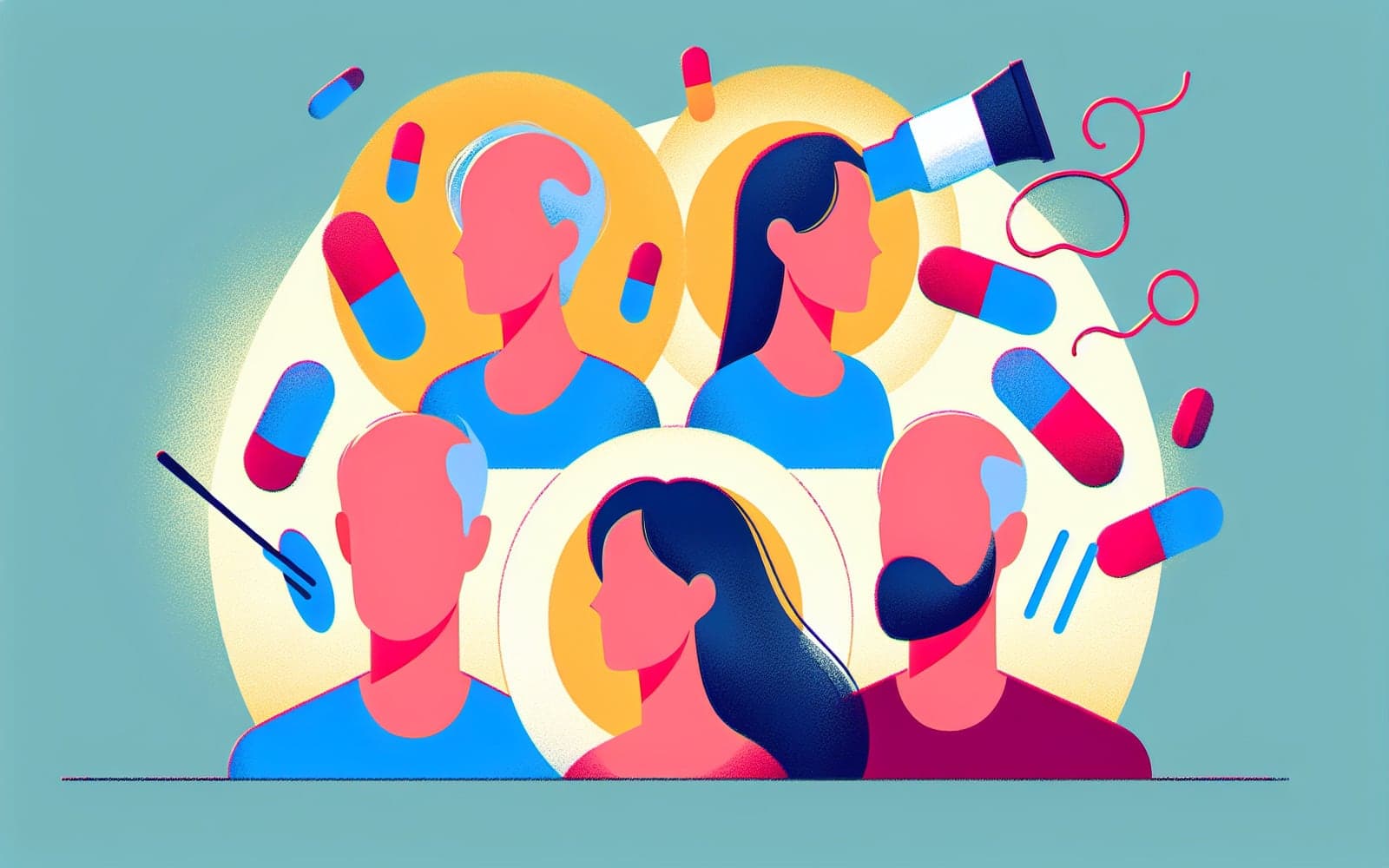Are You at Risk for Drug-Induced Hair Loss?
Published: Sep 22, 2023
Hair loss can be an unexpected side effect of some medications. Let's explore which drugs are the main culprits and how this happens.
Contents
How Drugs Cause Hair Loss
Certain medications can lead to hair loss by disrupting the normal growth cycle of hair follicles. This can happen either by abruptly halting cell division in the hair, known as anagen effluvium, or by prematurely pushing hair into the resting phase, known as telogen effluvium.
Common Offenders
Anticancer drugs are the most notorious for causing anagen effluvium, typically resulting in rapid hair loss. Meanwhile, medications like anticoagulants, retinoids, and some antihyperlipidemics are linked to telogen effluvium, where hair loss becomes noticeable a few months after starting the drug.

Managing the Risk
If you suspect your medication is causing hair loss, talk to your doctor about alternatives. Sometimes, adjusting the dose or switching to a different class of medication can help. Hair growth usually resumes once the offending drug is discontinued, but patience is key as this can take several months.
Frequently Asked Questions
It's hair loss due to halted cell division in hair follicles.
Anticancer drugs are the most common culprits.
It's triggered by drugs like anticoagulants and retinoids.
Yes, hair growth typically resumes after stopping the drug.
Key Takeaways
Identifying drug-induced hair loss early can help manage and mitigate its impact.
Concerned about hair loss from medication? Consult with Doctronic today!Related Articles
References
Tosti A, Pazzaglia M. Drug reactions affecting hair: diagnosis. Dermatol Clin 2007.
Piraccini BM, et al. Drug-induced hair disorders. Curr Drug Saf 2006.
Always discuss health information with your healthcare provider.

